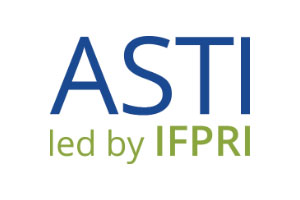Why does ASTI matter?
Agricultural Science and Technology Indicators (ASTI) provides trusted open-source data on agricultural research systems across the developing world.
This data provides important resources for researchers are national and regional levels, for policy makers, as well as other stakeholders. ASTI’s key indicators provide both a diagnostic tool for assessing the allocation and use of existing resources and an advocacy tool for increasing resources and improving the efficiency and effectiveness of resource use.
ASTI’s objectives are to provide high-quality, up-to-date datasets on agricultural research; to conduct ongoing analysis of its datasets; to disseminate the results of its analysis to promote advocacy and support policymaking; and to build national and regional capacity for data collection and analysis.
What is the methodology?
ASTI collects primary data through national survey rounds in collaboration with country focal points. Survey forms are distributed to all agencies known to conduct agricultural research in a given country.
ASTI has developed three different types of surveys:
1. Government and nonprofit agencies
2. Higher education entities
3. Private-for profit companies
What is the current status?
ASTI's outputs are frequently referenced in high‐level meetings and reports. ASTI’s most recent set of data and outputs for Africa are playing an important role in informing the debates surrounding the Comprehensive Africa Agriculture Development Program and the Science Agenda for Agriculture in Africa.
An increasing number of countries use ASTI data as a tool to advocate for increased research funding, increase the retirement age of scientists, training opportunities, and so on. ASTI has also (indirectly) improved M&E systems of many African agricultural research institutes.
Who is involved?
Led by the International Food Policy Research Institute (IFPRI) within the portfolio of the CGIAR Research Program on Policies, Institutions, and Markets (PIM), ASTI works with a large network of national collaborators to collect, compile, and disseminate information on financial, human, and institutional resources at both country and regional levels across government, higher education, nonprofit, and (where possible) private for-profit agricultural research agencies.
Related content on the Land Portal
Partners:
Donors:
Download this Dataset data.

